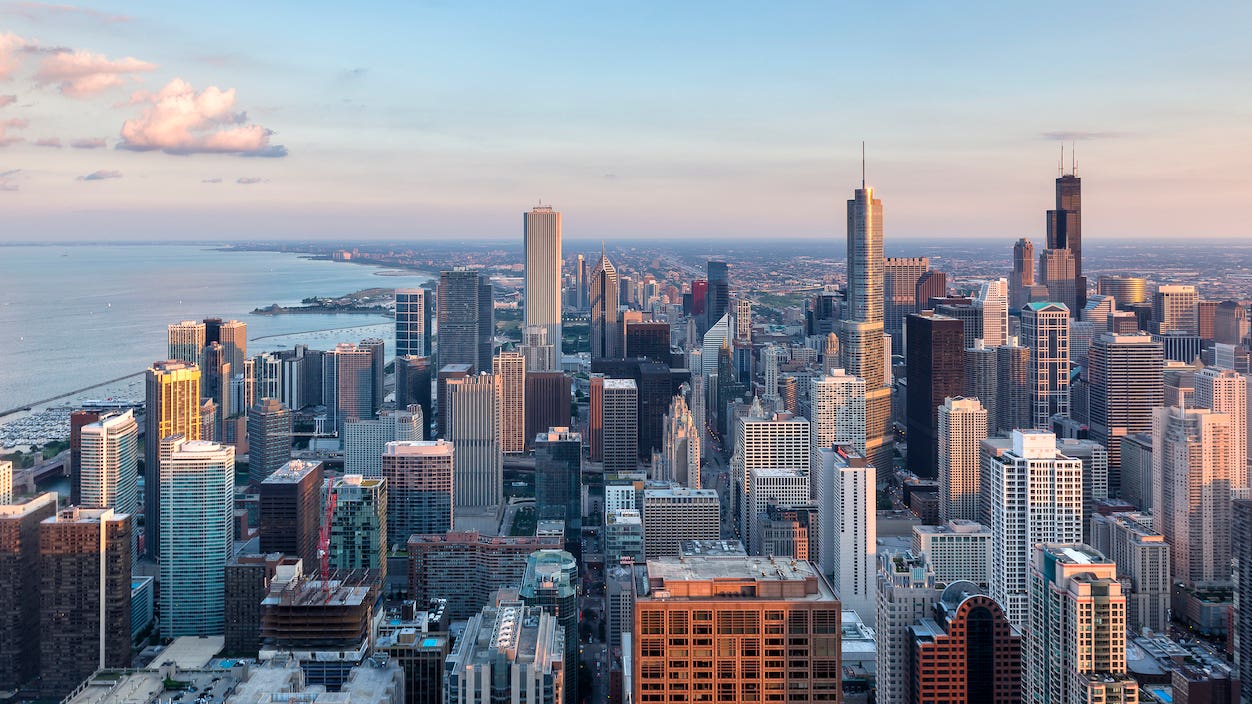Closing costs in Illinois

Whether you’re selling your home in the Prairie State or considering buying one, you’ve probably already started thinking about the Illinois housing market. Hopeful homebuyers may be checking out prices (particularly if you’re looking in the Chicago area, where price tags can be higher), and sellers might be thinking about the cost of repairs and staging before they’re ready to list. But that’s not all you should budget for. You also need to be ready for closing costs.
Maybe you’ve wondered who pays closing costs in Illinois — the buyer or the seller? And how much will they cost? We break it down below.
How much are closing costs in Illinois?
Closing costs vary based on several factors, and they also vary from one state to another. One way to calculate them is as a percentage of the home’s sale price. Data from CoreLogic’s ClosingCorp puts the average Illinois closing costs at 2.1 percent. That’s a bit on the high side: The rates in the neighboring states of Indiana and Missouri are just 0.9 percent and 0.8 percent, respectively.
For a median-priced home in the state — which costs $287,400, according to July Redfin data — 2.1 percent comes to $6,035. Of course, median prices can range higher or lower depending on where in Illinois you’re looking. In Peoria, Redfin data shows a median of just $155,000, which would result in $3,255 in closing costs, while in Chicago, where the median is $350,000, 2.1 percent would come to $7,350.
Who pays closing costs in Illinois, buyers or sellers?
Both buyers and sellers incur at least some costs at closing. For buyers, it’s mostly costs related to their home loan, and for sellers, it’s largely in the form of real estate commissions. If either or both parties retain a real estate attorney, the legal fees will have to be paid as well. here’s a rough outline.
Closing costs for buyers
Who pays for what will vary for each individual transaction, but In most real estate transactions in the Prairie State, buyers will pay:
- Lender-related fees: This includes all expenses related to taking out a mortgage, such as fees for the application, credit check and origination of the loan. This can also include mortgage points, if you choose to lower your rate in the long term by paying for this expense upfront.
- Inspection and appraisal fees: Most lenders will require a professional home appraisal, to ensure that the property is worth at least the amount they’re lending you. The home inspection is not required, but it’s an important step that shouldn’t be skipped — this is your chance as a buyer to find out about any major existing or potential problems with the home.
- Title-related fees: This will cover the cost of a title search, which ensures that ownership of the property may legally be transferred, and title insurance, which protects against any claims to ownership. In Illinois, the buyer’s policy is typically paid for by the seller, but it may vary.
- Escrow fees: Many lenders will require certain monthly fees to be prepaid in advance, such as property taxes or homeowners insurance premiums. In such cases, these funds will be held in escrow, which you may be charged for.
Closing costs for sellers
The lion’s share of a seller’s closing costs come from the real estate agents’ commissions. These usually total 5-to-6 percent of the home’s sale price — on a median-priced $287,400 Illinois home, 6 percent comes to $17,244.
In most of the state, sellers are also responsible for the Illinois transfer tax. In Chicago, though, both the seller and the buyer pay their share of this tax. The cost varies depending on what area of the state you’re in and can range as high as $10 for every $1,000 worth of value in some places, according to Illinois Realtors data. On a median-priced home, that’s another $2,874.
Illinois home sellers are also typically responsible for covering the cost of the buyer’s title insurance policy. Sellers might also need to pay prorated property taxes and HOA fees (if applicable) up to the closing date. And if you make any concessions to your buyer, such as agreeing to pay for any needed repairs, those will be due at closing too. This is becoming more common, according to a recent Redfin study, which found that nearly 45 percent of Chicago sales in early 2023 offered some type of seller concessions.
Lowering your closing costs in Illinois
Factoring in closing costs is an important part of figuring out how much house you can afford to buy, as well as how much it will cost to sell your home. But the good news is that there are ways to save money on these costs, whether you’re a buyer or a seller — and like a lot of things in the real estate world, many closing costs are negotiable.
If you’re buying a house, you should definitely explore closing cost and down payment assistance programs to see if you’re eligible for a grant or low-interest loan. These are specifically designed to make homeownership less of a financial burden. Illinois has many such programs for first-time buyers in particular. Don’t forget to shop around and compare fees and rates with multiple mortgage lenders.
Sellers can look into saving money on their biggest expense, agent commissions, by asking if the agent is willing to accept a lower rate. These rates are often negotiable. You can even choose to sell without a Realtor to save on commissions (though this will only save you a seller’s agent commission; you’ll still have to pay the buyer’s agent). In addition, concessions may be common but they’re not mandatory. You don’t have to agree to everything the buyer asks for.
Find a local real estate agent
Nothing can replace the expertise of a licensed professional who knows the local market well. A real estate agent with experience in your specific corner of Illinois will be able to help you understand closing costs and much more. Ask friends and family for referrals, look at yard signs in your area and do some online research to find candidates in your area, and interview a few before you choose someone to work with.
FAQs
-
Illinois closing costs average about 2.1 percent of the home’s sale price, according to ClosingCorp data. On a median-priced Illinois home, which is $287,400 according to Redfin, that comes to $6,035. Buying or selling in a more expensive market, like Chicago, will increase this cost. This amount does not include agents’ commissions, which are typically paid for by the seller.
-
The priciest aspect of closing costs is the real estate agents’ commissions, which are typically paid for by the seller. On a median-priced $287,400 Illinois home, a standard 6 percent commission comes to $17,244. The percentage is often negotiable, though it will likely still be the most expensive cost.
Why we ask for feedback Your feedback helps us improve our content and services. It takes less than a minute to complete.
Your responses are anonymous and will only be used for improving our website.






